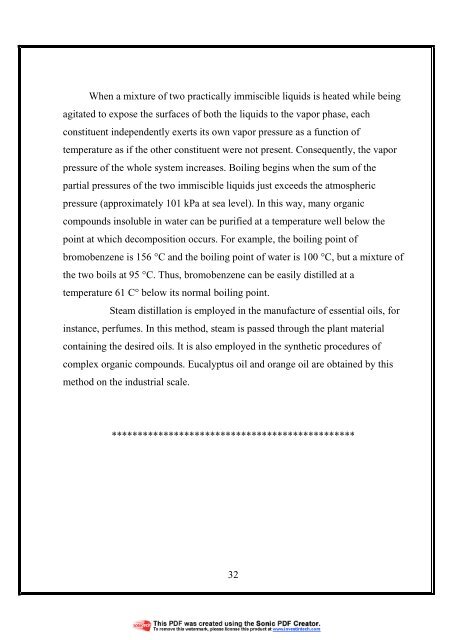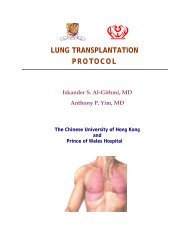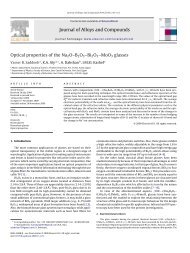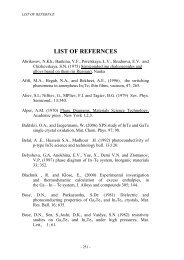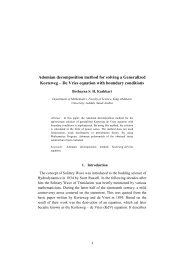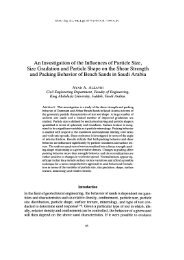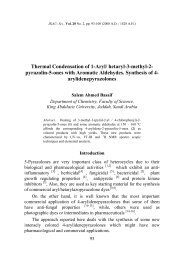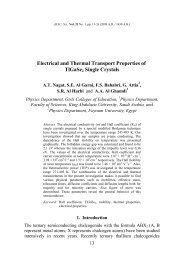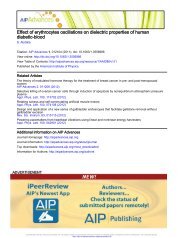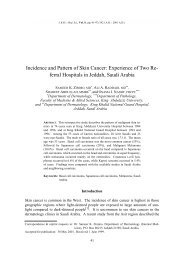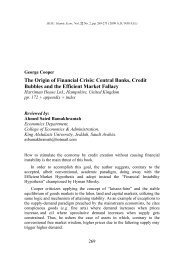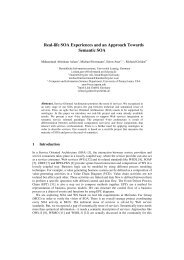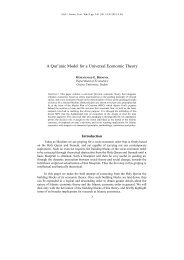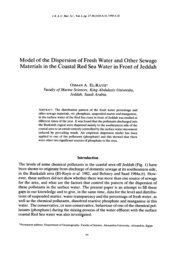Fundamental Organic Chemistry
Fundamental Organic Chemistry
Fundamental Organic Chemistry
Create successful ePaper yourself
Turn your PDF publications into a flip-book with our unique Google optimized e-Paper software.
When a mixture of two practically immiscible liquids is heated while being<br />
agitated to expose the surfaces of both the liquids to the vapor phase, each<br />
constituent independently exerts its own vapor pressure as a function of<br />
temperature as if the other constituent were not present. Consequently, the vapor<br />
pressure of the whole system increases. Boiling begins when the sum of the<br />
partial pressures of the two immiscible liquids just exceeds the atmospheric<br />
pressure (approximately 101 kPa at sea level). In this way, many organic<br />
compounds insoluble in water can be purified at a temperature well below the<br />
point at which decomposition occurs. For example, the boiling point of<br />
bromobenzene is 156 °C and the boiling point of water is 100 °C, but a mixture of<br />
the two boils at 95 °C. Thus, bromobenzene can be easily distilled at a<br />
temperature 61 C° below its normal boiling point.<br />
Steam distillation is employed in the manufacture of essential oils, for<br />
instance, perfumes. In this method, steam is passed through the plant material<br />
containing the desired oils. It is also employed in the synthetic procedures of<br />
complex organic compounds. Eucalyptus oil and orange oil are obtained by this<br />
method on the industrial scale.<br />
***********************************************<br />
32


